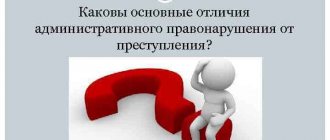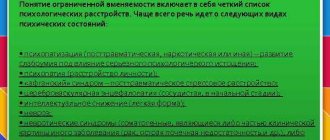Now, thanks to information posted on the Internet, every citizen liable for military service will be able to independently decipher his own diagnosis, which is made by members of the draft commission during a medical examination. To do this, it is enough to understand how the “schedule of illnesses” works, and also to have a reference book of medical terminology on hand for the correct interpretation of the diagnosis.
It is worth noting the fact that over time, the “disease schedule” undergoes certain changes, which leads to some misunderstandings. For example, depending on the year you received your military ID, the coding of the diagnosis may differ significantly.
Explanation of articles 1a and 1b
As of 2022, Article 1 contains a list of infectious diseases, diseases of viral and bacterial origin, as well as parasitic infections and diseases caused by arthropods. Such clarifications are extremely necessary, as previously Article 1b in the military ID indicated the diagnosis of debility or mental retardation.
This article has only two points:
- Article 1a. It is given to a conscript if he is diagnosed with a difficult-to-treat or incurable disease. Only based on the results of an in-depth laboratory examination of a conscript can he be assigned this article. If a conscript is assigned article 1a, then he is assigned fitness category B. That is, he will not serve, at least in peacetime.
- Article 1b. Implies a long-term nature of the disease. Often, with such a diagnosis, a young person receives a deferment to undergo a rehabilitation course. For this purpose, he is temporarily assigned category “G”. If such a diagnosis is revealed in a military personnel, he may be discharged. In other situations, he may be given a month's leave to improve his general condition. After successfully completing the course of treatment, the conscript is assigned fitness category “A” or “B” and he goes to serve. If the conscript’s condition has not improved, then he will be assigned fitness category “B” with article 1a.
Commentary to Art. 1 of the Criminal Code
1. According to Article 1 of the Criminal Code of the Russian Federation, the only federal law that is the source of the criminal legal system of Russia is the Criminal Code of the Russian Federation. New laws establishing the criminality of an act, its punishability and other criminal legal consequences cannot be applied without including them in the structure of the Criminal Code. An exception to this rule in accordance with Part 3 of Art. 331 of the Criminal Code constitutes wartime legislation.
2. The criminal law has the highest legal force - not a single normative act can contradict the Criminal Code, otherwise the latter will always be in force.
3. The Constitution of the Russian Federation occupies a priority position in relation to the criminal law, since it has supreme legal force and direct effect (Part 1 of Article 15). If a conflict is established between the norms of the Criminal Code and the Basic Law of the country, it is necessary to apply the provisions of the Constitution of the Russian Federation.
4. Generally recognized principles and norms of international law are not, in the strict sense of the word, sources of criminal law; they have a universal rather than criminal law nature and can be applied when they are included in the Criminal Code.
Determining a diagnosis by its coding
When determining a diagnosis and assigning a particular category of suitability to a conscript, the draft commission uses a document called “Schedule of Diseases.” In fact, this document completely regulates the actions of members of the medical commission at the military registration and enlistment office.
When the legislative framework changed, the very meaning of the suitability categories did not undergo any adjustments.
- Category “A” is assigned to those conscripts who do not have any serious health problems, which allows them to fully serve in the army;
- In the same case, if, when examining a conscript, members of the commission discover some pathologies and diseases in him that do not create any special obstacles to compulsory military service, then the young man is assigned category “B”. With this category, a guy can be drafted into the army, but with some reservations and restrictions;
- If a conscript has diseases and disabilities that have a moderate negative impact on his life, then he will not join the army. Such conscripts receive category “B”. They remain liable for military service. During the period of mobilization, this category of citizens may be called up for service;
- If a young person has a disease that can be treated, then he receives a temporary reprieve to eliminate all health-related problems. Such guys are temporarily assigned category “G”. After the deferment, such guys undergo a second medical examination, as a result of which they are drafted into the army or are declared unfit for service;
- If a young man has a serious illness, he is completely exempt from conscription and loses the status of a person liable for military service, and also receives category “D”.
All diseases in the “Schedule of Diseases” are divided into separate groups. Each pathology concerns a specific body system or organ. It is also worth noting that each disease has an article number, which is indicated in the conscript’s diagnosis. To indicate different degrees of severity of the pathology, a letter is added to the digital designation.
How to change article 1a or 1b
A repeated medical examination of a person liable for military service is permitted if there are compelling reasons to believe that there has been a change in his state of health and the diagnosis indicated on the man’s military ID. After the citizen is re-examined, the results of the previous medical examination will be automatically cancelled.
For this reason, if a person wants to change article 1a or 1b in his military ID, he will need to go to the military registration and enlistment office with a corresponding application requesting the appointment of a second medical commission. Based on its results, the man will receive a new fitness category in his military registration card.
Important! Changing the article will also entail a change in the eligibility category.
Results
The above facts explain the reason why Article 1 causes a lot of discussions and questions among the male population. If the presence of a diagnosis of an infectious disease does not in any way affect one’s position in society, then the diagnosis of debility radically changes a person’s life.
Despite the fact that draft dodgers previously often used this article to avoid serving in the army, its presence on a military ID has a negative impact on employment opportunities and obtaining a driver’s license.
Article 1.1. Legislation on administrative offenses
Appeal ruling of the Judicial Collegium for Administrative Cases of the Supreme Court of the Russian Federation dated March 15, 2017 N 46-APG17-4 In accordance with Part 1 of Article 1.1 of the Code of the Russian Federation on Administrative Offenses, the legislation on administrative offenses consists of this Code and the laws of the constituent entities of the Russian Federation adopted in accordance with it Federation on Administrative Offences. According to paragraph 1 of part 1 of Article 1.3.1 of the Code of the Russian Federation on Administrative Offenses, the jurisdiction of the constituent entities of the Russian Federation in the field of legislation on administrative offenses includes the establishment by the laws of the constituent entities of the Russian Federation on administrative offenses of administrative liability for violation of laws and other regulatory legal acts of the constituent entities of the Russian Federation, regulatory legal acts of local government bodies.
Appeal ruling of the Judicial Collegium for Administrative Cases of the Supreme Court of the Russian Federation dated May 31, 2017 N 56-APG17-8
In accordance with Part 1 of Article 1.1 of the Code of the Russian Federation on Administrative Offences, the legislation on administrative offenses consists of this Code and the laws of the constituent entities of the Russian Federation on administrative offenses adopted in accordance with it. According to paragraph 1 of part 1 of Article 1.3.1 of the Code of the Russian Federation on Administrative Offenses, the jurisdiction of the constituent entities of the Russian Federation in the field of legislation on administrative offenses includes the establishment by the laws of the constituent entities of the Russian Federation on administrative offenses of administrative liability for violation of laws and other regulatory legal acts of the constituent entities of the Russian Federation, regulatory legal acts of local government bodies.
Appeal ruling of the Judicial Collegium for Administrative Cases of the Supreme Court of the Russian Federation dated December 11, 2017 N 45-APG17-18
By virtue of Part 1 of Article 1.1 of the Code of the Russian Federation on Administrative Offenses, the legislation on administrative offenses consists of this Code and the laws of the constituent entities of the Russian Federation on administrative offenses adopted in accordance with it. According to paragraph 1 of part 1 of Article 1.3.1 of the Code of the Russian Federation on Administrative Offenses, the jurisdiction of the constituent entities of the Russian Federation in the field of legislation on administrative offenses includes the establishment by the laws of the constituent entities of the Russian Federation on administrative offenses of administrative liability for violation of laws and other regulatory legal acts of the constituent entities of the Russian Federation, regulatory legal acts of local government bodies.
Resolution of the Supreme Court of the Russian Federation dated January 16, 2020 N 82-AD19-16
According to Part 2 of Article 1.1 of the Code of the Russian Federation on Administrative Offences, this Code is based on the Constitution of the Russian Federation, generally recognized principles and norms of international law and international treaties of the Russian Federation. By virtue of the provisions of Article 8 of the Convention for the Protection of Human Rights and Fundamental Freedoms (Rome, 4 November 1950), everyone has the right to respect for his private and family life. There shall be no interference by a public authority with the exercise of this right except where such interference is in accordance with the law and is necessary in a democratic society in the interests of national security or public order, the economic welfare of the country, the prevention of disorder or crime, or the protection of health or morals or protecting the rights and freedoms of others.
Resolution of the Supreme Court of the Russian Federation dated January 27, 2020 N 18-AD19-75
According to Part 2 of Article 1.1 of the Code of the Russian Federation on Administrative Offences, this Code is based on the Constitution of the Russian Federation, generally recognized principles and norms of international law and international treaties of the Russian Federation. By virtue of the provisions of Article 8 of the Convention for the Protection of Human Rights and Fundamental Freedoms (Rome, November 04, 1950), everyone has the right to respect for his private and family life. There shall be no interference by a public authority with the exercise of this right except where such interference is in accordance with the law and is necessary in a democratic society in the interests of national security or public order, the economic welfare of the country, the prevention of disorder or crime, or the protection of health or morals or protecting the rights and freedoms of others.
Determination of the Constitutional Court of the Russian Federation dated March 26, 2020 N 556-O
Article 1.1 of the Code of Administrative Offenses of the Russian Federation, contested by the applicant, establishes the foundations of legislation on administrative offenses, and also establishes the priority of the norms of international law over the norms of this legislation. Being aimed at observing constitutional principles and protecting the procedural rights of a person brought to administrative responsibility, the content of this legal provision is general in nature, and therefore in itself also cannot be considered as violating any constitutional rights of the applicant.
Resolution of the Supreme Court of the Russian Federation dated April 16, 2020 N 5-AD20-43
According to Part 2 of Article 1.1 of the Code of the Russian Federation on Administrative Offences, this Code is based on the Constitution of the Russian Federation, generally recognized principles and norms of international law and international treaties of the Russian Federation. By virtue of the provisions of Article 8 of the Convention for the Protection of Human Rights and Fundamental Freedoms (Rome, 04 November 1950), everyone has the right to respect for his private and family life. There shall be no interference by a public authority with the exercise of this right except where such interference is in accordance with the law and is necessary in a democratic society in the interests of national security or public order, the economic welfare of the country, the prevention of disorder or crime, or the protection of health or morals or protecting the rights and freedoms of others.
Resolution of the Supreme Court of the Russian Federation dated March 18, 2020 N 41-AD20-2
According to Part 2 of Article 1.1 of the Code of the Russian Federation on Administrative Offences, this Code is based on the Constitution of the Russian Federation, generally recognized principles and norms of international law and international treaties of the Russian Federation. By virtue of the provisions of Article 8 of the Convention for the Protection of Human Rights and Fundamental Freedoms (Rome, 04 November 1950), everyone has the right to respect for his private and family life. There shall be no interference by a public authority with the exercise of this right except where such interference is in accordance with the law and is necessary in a democratic society in the interests of national security or public order, the economic welfare of the country, the prevention of disorder or crime, or the protection of health or morals or protecting the rights and freedoms of others.
Resolution of the Supreme Court of the Russian Federation dated April 16, 2020 N 44-AD20-5
According to Part 2 of Article 1.1 of the Code of the Russian Federation on Administrative Offences, this Code is based on the Constitution of the Russian Federation, generally recognized principles and norms of international law and international treaties of the Russian Federation. By virtue of the provisions of Article 8 of the Convention for the Protection of Human Rights and Fundamental Freedoms (Rome, 04 November 1950), everyone has the right to respect for his private and family life. There shall be no interference by a public authority with the exercise of this right except where such interference is in accordance with the law and is necessary in a democratic society in the interests of national security or public order, the economic welfare of the country, the prevention of disorder or crime, or the protection of health or morals or protecting the rights and freedoms of others.
Resolution of the Supreme Court of the Russian Federation dated March 26, 2020 N 18-AD20-8
According to Part 2 of Article 1.1 of the Code of the Russian Federation on Administrative Offences, this Code is based on the Constitution of the Russian Federation, generally recognized principles and norms of international law and international treaties of the Russian Federation. By virtue of the provisions of Article 8 of the Convention for the Protection of Human Rights and Fundamental Freedoms (Rome, 04 November 1950), everyone has the right to respect for his private and family life. There shall be no interference by a public authority with the exercise of this right except where such interference is in accordance with the law and is necessary in a democratic society in the interests of national security or public order, the economic welfare of the country, the prevention of disorder or crime, or the protection of health or morals or protecting the rights and freedoms of others.
Resolution of the Supreme Court of the Russian Federation dated July 23, 2020 N 5-AD20-73
According to Part 2 of Article 1.1 of the Code of the Russian Federation on Administrative Offences, this Code is based on the Constitution of the Russian Federation, generally recognized principles and norms of international law and international treaties of the Russian Federation. By virtue of the provisions of Article 8 of the Convention for the Protection of Human Rights and Fundamental Freedoms (Rome, 04 November 1950), everyone has the right to respect for his private and family life. There shall be no interference by a public authority with the exercise of this right except where such interference is in accordance with the law and is necessary in a democratic society in the interests of national security or public order, the economic welfare of the country, the prevention of disorder or crime, or the protection of health or morals or protecting the rights and freedoms of others.




